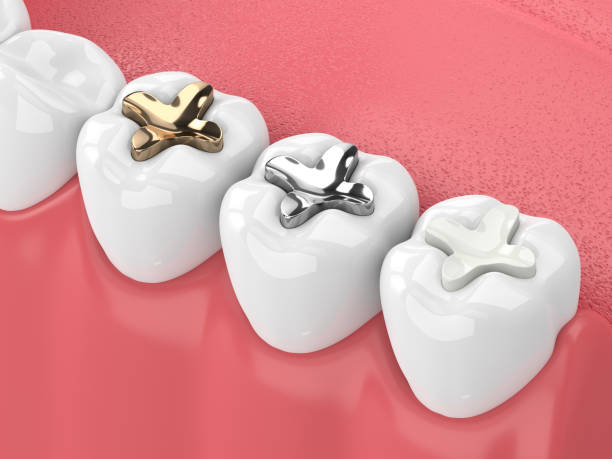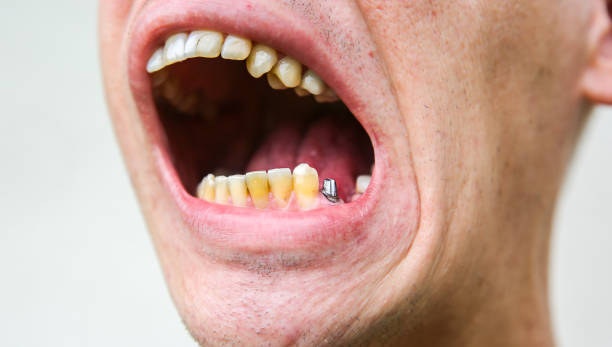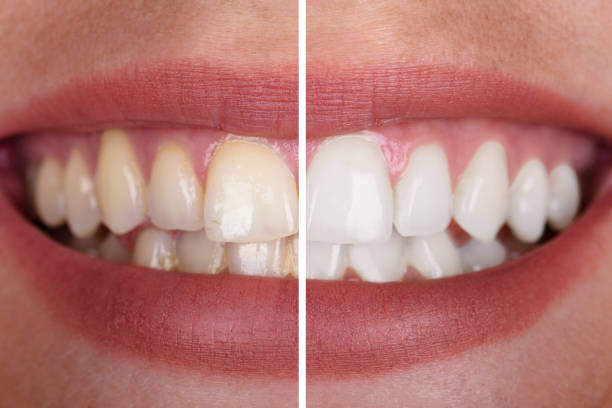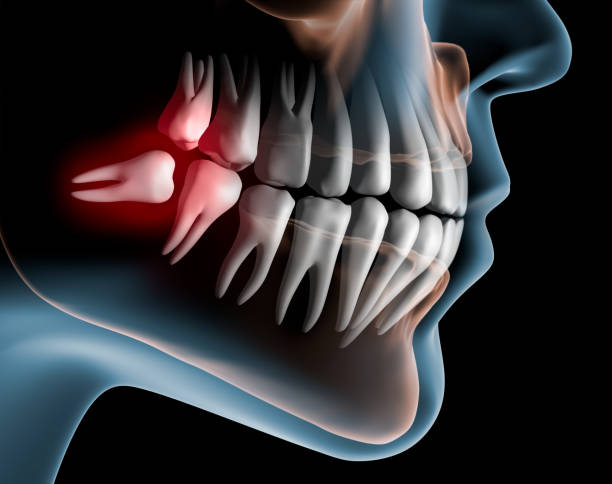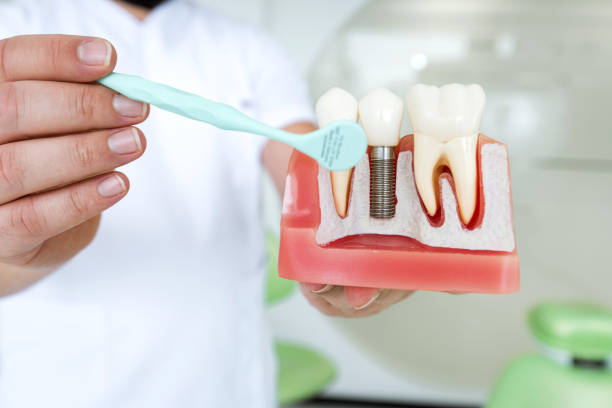The third and final set of molars to erupt during the early stages of human development are known as wisdom teeth. Today, however, they are merely unnecessary because of improved oral hygiene and care because we only need our molars. But when wisdom teeth begin to emerge, they can shift and impact the alignment of your teeth and jaw. Therefore, it is crucial to extract them.
In the meantime, we’ll discuss some indicators that you need to have your wisdom teeth removed. Keeping up with routine dental checkups with your dentist will help you keep an eye on their development.
Table of Contents
What Are Wisdom Teeth
Unfortunately, in spite of their name, wisdom teeth don’t actually increase your intelligence or wisdom. Wisdom teeth are the third set of molars that typically come in between your late teens and early twenties. Because the human jaw has grown smaller over time, when the wisdom teeth begin to erupt, the teeth may crowd together or become impacted. When this happens, the teeth must then be extracted. The mouths of some individuals, however, are actually large enough to accommodate the third row of molars that are coming in.
Signs Your Wisdom Teeth Need to Be Removed
Extreme Pain
A tell-tale sign that you need a dental procedure is when you are experiencing pain in your mouth. This is particularly true if the pain persists even after you’ve taken painkillers or brushed and flossed your teeth.
There are many potential causes for this type of issue, so you might need to conduct additional research before identifying the pain’s primary culprit.
Typically, the pain should be coming from the back of your mouth, where your wisdom teeth are. It can often feel like something is pushing on your jaw or gums. But sometimes the pain can move to other areas of your mouth as well. When the pain lasts, it is best to visit your dentist for x-rays and a checkup.
Swollen Gums
The presence of swollen gums is another symptom of painful wisdom teeth. When your wisdom teeth are trying to erupt, they can irritate your gums, making them feel tight, hot, and irritated, similar to a teething baby or toddler.
The issue with wisdom teeth is that they frequently aren’t growing in the proper direction, which prevents them from properly penetrating the gums. This implies that the discomfort and pain won’t go away. So that the teeth can be removed and the pressure on the gums is relieved, oral surgery is crucial.
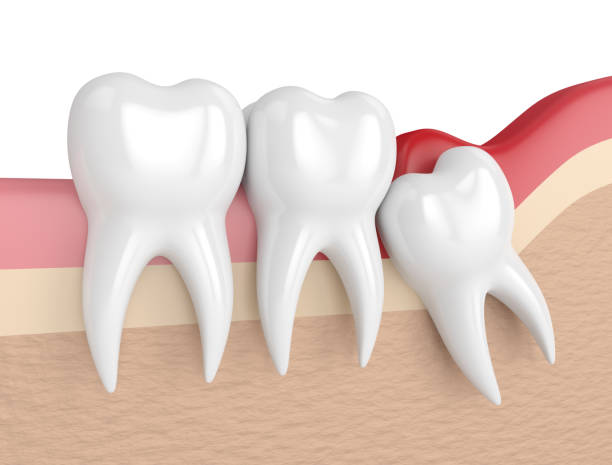
Teeth Crowding
The fact that wisdom teeth are larger than average and most mouths cannot accommodate them is one of the biggest problems with them. When the teeth are left to grow too long they can move your existing teeth.
When teenagers can’t straighten their smiles with braces, crowding of the teeth is a particularly obvious sign that they need to have their wisdom teeth removed. As a result, the other teeth are under too much pressure to move and the teeth are occupying too much space. The good news is that after the wisdom teeth are moved, everything should be in balance and there should be enough room for the other teeth to be straight.
Jaw Issues
Being able to open and close your jaw properly is a crucial aspect of overall health and wellness. Without being able to chew and process your food effectively, which is impossible if your jaw is not moving freely, you cannot have proper digestion.
Your ability to comfortably close your jaw can be hampered by wisdom teeth in some of the worst situations.
In the long run, tooth extraction is frequently a much simpler solution for these problems, which are occasionally mistaken for TMJ problems but are easily resolved by doing so.
Continued Cavities
Wisdom teeth, particularly those that have partially emerged, at odd angles, or caused crowding, can prevent you from thoroughly brushing your teeth. This implies that buildup and cavities are more likely to affect your teeth.
It might be a good idea to discuss the cause of your cavities with your dentist if you find that you are consistently getting them (and that’s not normal for you). By getting rid of your wisdom teeth, you may decrease the areas in your mouth where bacteria can congregate and lessen the likelihood that cavities will develop.
Increased Sinus Pressure
We frequently overlook the relationship between our sinuses and the roots of our teeth despite the fact that they are situated next to one another. But impacted wisdom teeth can often cause our sinuses to experience additional pressure, which can make our heads feel heavy and uncomfortable.
If your sinus pain doesn’t go away with regular medication and radiates from your jaw, it may be caused by your wisdom teeth.
This is a side effect of wisdom teeth that is fortunately less common. But if it does, you should deal with it as soon as you can so that you can resume your normal activities and prevent the pain from becoming worse.
Signs of a Potential Problem
The majority of patients experience no side effects from having their wisdom teeth removed through dental surgery. Even if you’re not having any issues at the moment, it’s a good idea to remove them. This is particularly valid if you anticipate finding yourself in a situation where you won’t be able to undergo the procedure in the future.
Many women have their wisdom teeth out before they begin having children since they wouldn’t be able to have the surgery while pregnant. Similar justifications are used by others who will be spending a considerable amount of time abroad.
In the long run, it’s a good idea to get ahead and take preventative measures than wait for a problem to come up.

What Are the Risks of Wisdom Teeth Extraction?
If your wisdom teeth aren’t causing you any problems or aren’t impacted, you should consider the potential risks and benefits before deciding whether to have them removed.
Complications are less likely if you choose a qualified and experienced dentist to perform your oral surgery. However, any surgical removal of wisdom teeth carries the following risks:
• bleeding that won’t stop for about 24 hours.
• Swelling and pain in your gums and tooth socket.
• Slow-healing gums.
• You may experience jaw pain or difficulty opening it.
• Damage to nearby teeth’s roots or dental work, such as bridges or crowns.
• numbness in your lips and mouth after the local anesthetic wears off brought on by jaw swelling or nerve damage. Usually, this numbness dissipates over time, but it can occasionally last longer.
• an access point into your sinus cavity in the event that your upper jaw needs to have a wisdom tooth removed.
• painful swelling and a dry socket are the results. When the blood clot inside the gaping tooth socket is prematurely dislodged, it causes the condition.
What Are the Risks of Keeping Your Wisdom Teeth?
If you choose not to have your wisdom teeth pulled, you may experience the following wisdom teeth symptoms:
• Your wisdom tooth may become impacted and trapped under the gums if there is not enough space in your mouth for it to erupt normally.
• A flap of gum tissue may develop over your wisdom tooth if it only emerges partially. Your gums may become painful, red, and swollen as a result, which are the early symptoms of an infection. This may also cause food debris to get trapped under the flap.
• If you decide to keep your wisdom teeth, there is a higher chance that you will develop periodontal disease and cavities in the back of your mouth. Two dental exams a year at Rockcliffe Dental & Denture Center can aid in identifying and treating these issues early.
• Bones and teeth nearby may become damaged if an infection develops around the impacted wisdom teeth. A fluid sac may form around the impacted tooth, which can grow into a cyst over time. The jaw, bones, and nearby teeth could sustain significant harm as a result.
• Future orthodontic treatment could be complicated by your wisdom teeth.
Summary: Pay Attention
It is frequently intolerable to live with tooth pain or discomfort because it interferes with your daily activities and makes it difficult to enjoy almost anything. If your wisdom teeth are the source of the pain, having them removed can significantly reduce it.
The trick is to hire highly qualified, compassionate oral surgeons with years of experience extracting wisdom teeth just like yours to perform the procedure. Our team is capable of handling any case that comes our way, and we are confident that you will be pleased with the results and soon be able to resume your regular activities.




